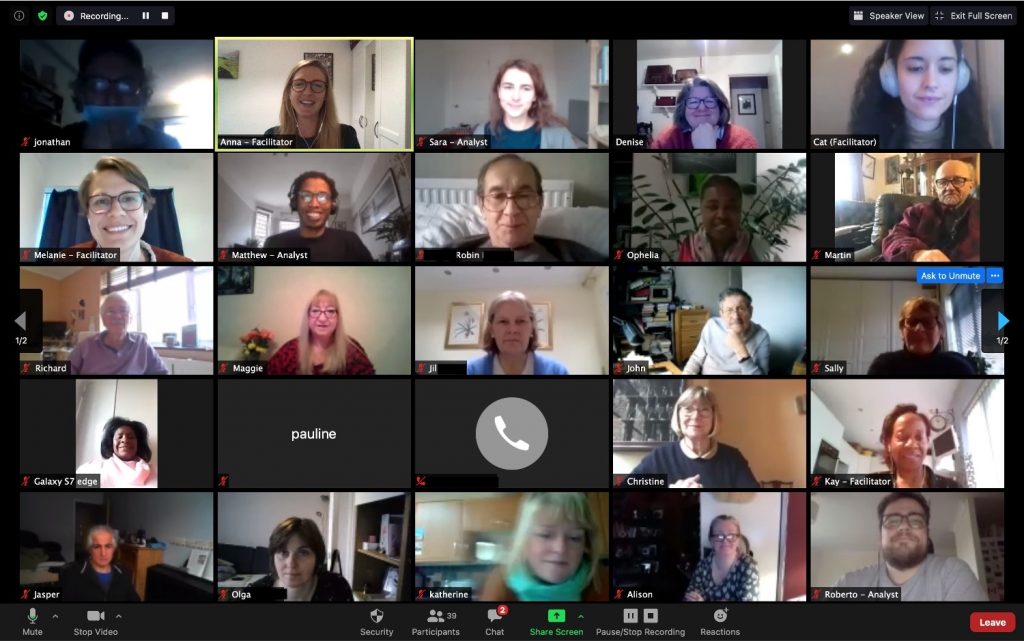
Last summer, the Institute of Global Health Innovation, Imperial College Health Partners and Imperial College London were successful in being named as one of the five Network Data Labs (NDL) across the UK, funded by the Health Foundation.
This is an extremely exciting opportunity for our partnership. We have the opportunity to work with our local community in North West London to identify research priorities for health and care since COVID-19, and translate those findings into practice – helping to reduce inequalities.
In North West London we are also very fortunate to have access to a linked data set, known as Discover. This provides information from primary care, acute, mental health, community and social care. It gives us the unique opportunity to delve deeper into health inequalities, and use data to try and discover how communities have been affected by the pandemic.
Our first research project has been an analysis of people recommended to shield by the government, and how COVID-19 has affected them. North West London has a very diverse population in terms of income and ethnicity. We therefore wanted to be sure we were working with a range of patients and the public to help inform our research priorities. Two groups we worked closely with are the Imperial Research Partners group, a diverse group of 11 patients and carers, and also Community Voices, a group of community leaders linked to groups representing people from socially disadvantaged backgrounds, those who don’t have English as a first language and a range of other seldom heard communities.
Identifying priorities and concerns
Back in November around 50 people from Community Voices, 40% of whom were from a minority ethnic background and 40% who identified as having a disability, attended a design workshop to help consider two questions. 1) What changes have you noticed in the way that health and care are supported and delivered in North West London since COVID-19? And 2) In terms of the impact COVID-19 has on health and care in the UK, what are our local North West London community priorities for health and care? What are people most worried about and why?
There were two key elements that helped to ensure the workshop could be as productive as possible:
- Ensuring we had plenty of time to explain the Discover data in plain English, and to allow questions around data security.
- Having an analyst involved with each breakout session to help ensure emerging themes were issues we could analyse within our data.

The impact of COVID-19 on mental health
After the workshop, we collated all of the themes that were raised and the analysts checked whether these themes could be answered using the Discover data set. Seven themes were put into a prioritisation survey. To reach as many North West Londoners as possible, we sent the survey to all the Community Voices network, the workshop attendees and other local community groups, via Twitter, Instagram, the Nextdoor App and Facebook groups for local COVID-19 Mutual Aid Groups. 112 community members completed the survey and the seven themes ranked in this order of importance:
- Diagnosis of other conditions
- Underserved communities (e.g. people on low incomes)
- Mental health
- Local availability of services
- Access to video consultations
- Social and community care
- Worse COVID-19 outcomes for minority ethnic groups.
We submitted these findings to the Health Foundation, along with the other NDL members. The next overarching topic we will be working on is the impact of COVID-19 on mental health – one of the top three priorities selected locally. Working with local clinicians and drawing on evidence from recent research and engagement with people with lived experience of mental health, including those from under-represented groups, the Health Foundation have decided our next focus will be on inequalities in children and young people’s access to mental healthcare.
Using data to drive real change
We know the pandemic has particularly impacted children and young people from socially disadvantaged backgrounds, particularly in terms of mental health service provision. So we will use Discover and other data sets to delve deeper into why access to services is so fragmented at the moment. We will also work with young people from North West London with lived experience of mental health conditions. We will discuss what is important to them in health and social care since COVID-19, as well as carers, families and teachers.
Building on learnings from IGHI’s co-produced CCopeY study, which has looked at the impact of lockdown on young people’s mental health, we’ll be making these sessions as interactive and as accessible as possible. Our intention is to use our findings – from both our engagement and our data analysis – to help effect real change locally in North West London. We’re so excited to start this work. And we’re looking forward to sharing our learnings as we progress through the journey.
For more information, or to get involved, please do contact me at a.lawrence-jones@imperial.ac.uk
By Anna Lawrence-Jones, PPIE lead for the Network Data Lab and IGHI